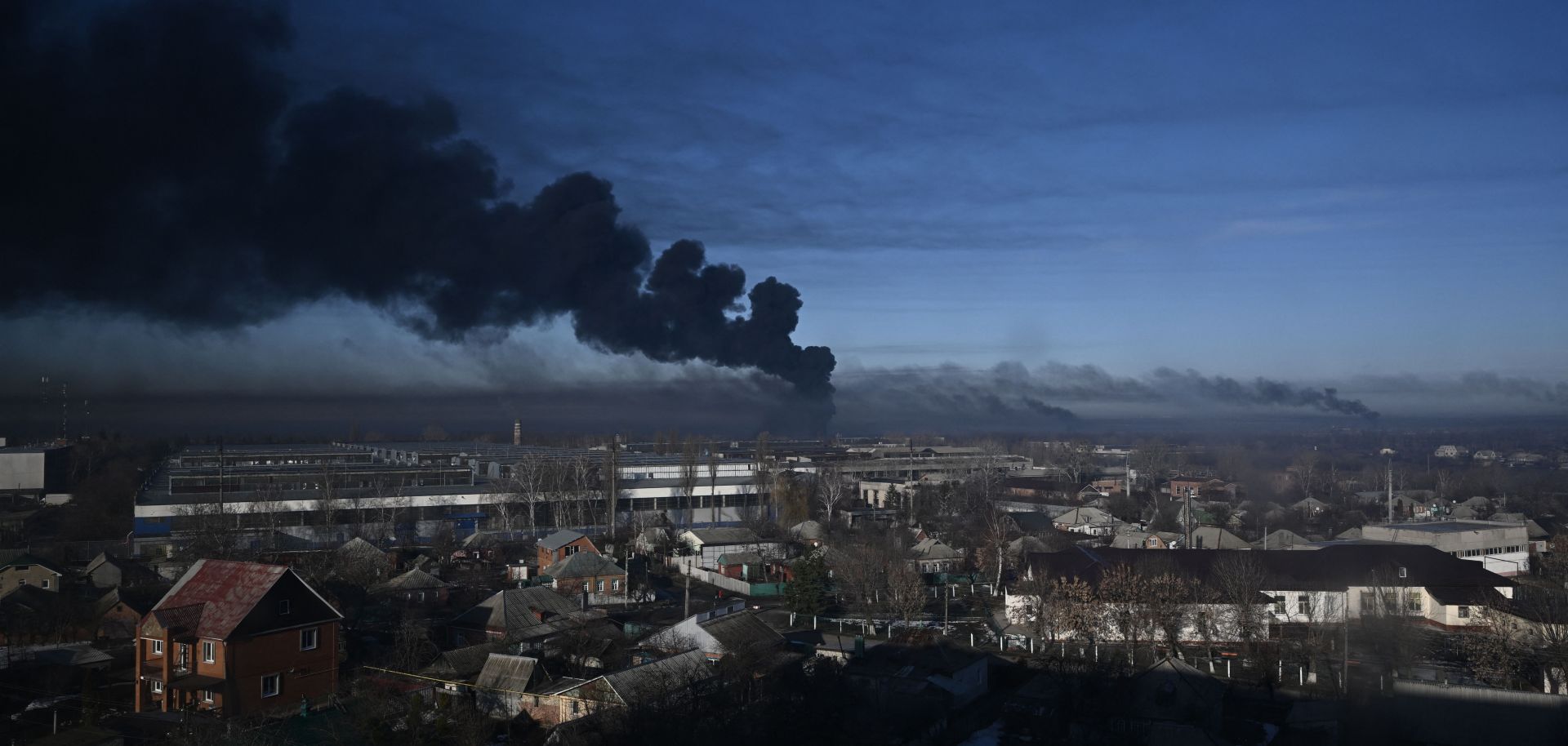GUIDANCE
Russia's Invasion of Ukraine Will Cause Western Sanctions, but Not Intervention
Feb 24, 2022 | 12:31 GMT

Black smoke rises from a military airport in Chuguyev near Kharkiv on Feb. 24, 2022.
(Photo by ARIS MESSINIS/AFP via Getty Images)
Subscribe Now
SubscribeAlready have an account?
